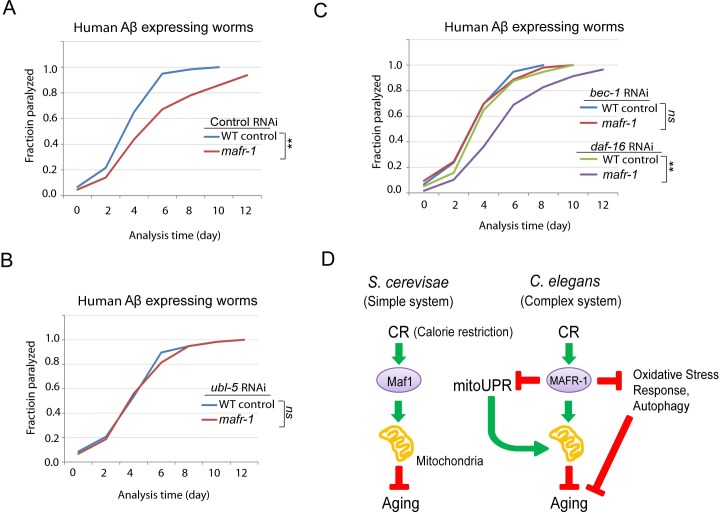Figure 7. C. elegans Alzheimer's disease model is affected by loss of MAFR-1.
A. mafr-1 mutation delays the paralysis caused by expressing human Aβ in the body wall muscle. Chi-square test: **p < 0.001. B. The delayed paralysis in mafr-1 mutant worms was dependent on UPRmt. Worms were subject to RNAi knockdown of the key transcriptional factor UBL-5 for UPRmt. Chi-square test: ns, not significant. C. Autophagy but not oxidative stress response is involved in the delayed paralysis of mafr-1 animals. Worms were subject to indicated RNAi knockdowns. Chi-square test: **p < 0.001, ns, not significant. D. A working model describing the role of Maf1/MAFR-1 in regulation of calorie restriction (CR). In single cellular organism yeast, Maf1 prevents CR to enhance mitochondrial function, therefore delaying aging. The Maf1 homolog MAFR-1 in C. elegans is regulated by CR similarly at the molecular level. However, stress responses are induced to extend lifespan in response to MAFR-1 loss, causing opposite observations. Our study indicates that aging study could be complicated by distinct stress responses in different model organisms.

